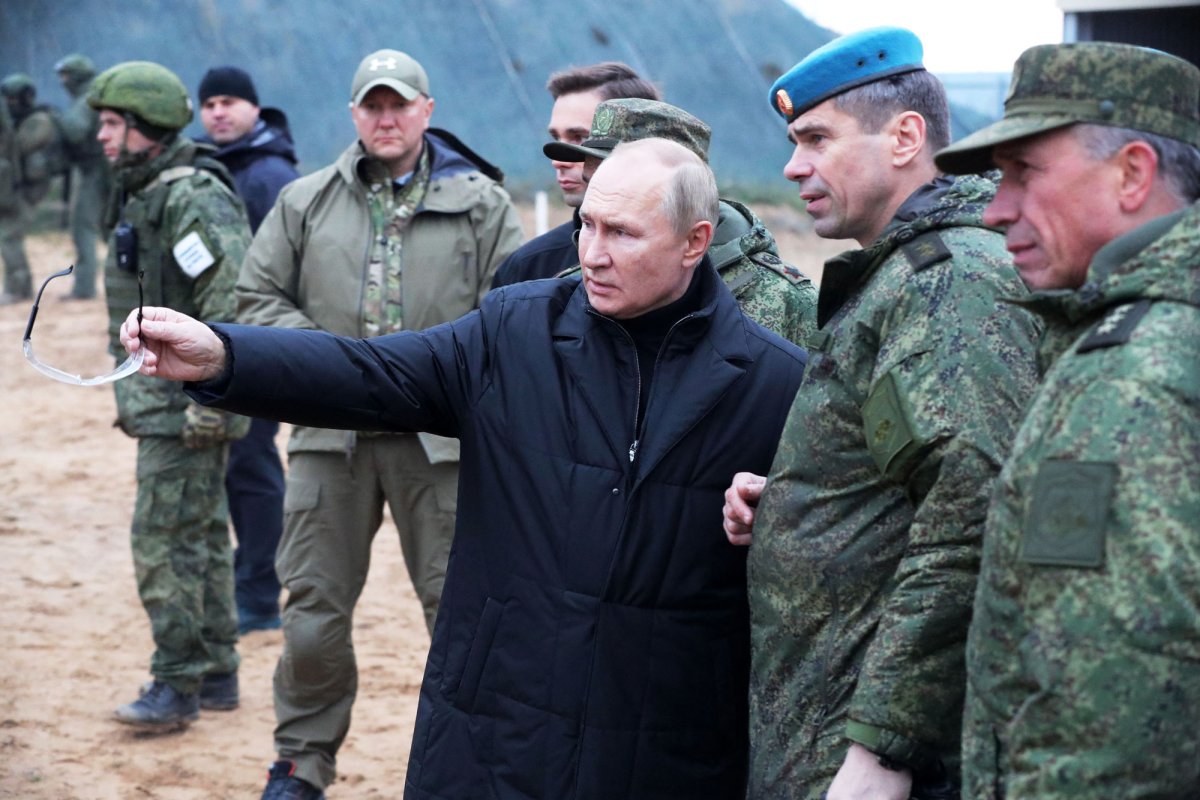Europe's Rising Military Spending In Response To Russia

Table of Contents
The Geopolitical Shift: Russia's Invasion as a Catalyst
Russia's full-scale invasion of Ukraine in February 2022 shattered the post-Cold War perception of European security. The brutal conflict exposed the vulnerability of Ukraine and raised serious concerns about Russia's potential for further aggression against its neighbors. This invasion served as a stark catalyst, forcing a reassessment of defense capabilities and prompting a significant increase in military spending across the continent.
- Increased awareness of Russia's aggression: The invasion highlighted the Kremlin's willingness to use military force to achieve its geopolitical objectives, shattering any remaining illusions about a peaceful, cooperative relationship.
- Breakdown of the post-Cold War security architecture: The invasion exposed the inadequacies of the existing security framework in preventing large-scale aggression within Europe. This led to a renewed focus on collective defense and deterrence.
- Shift in public and political opinion regarding military spending: Public support for increased defense spending has grown significantly in many European countries, reflecting a widespread recognition of the need for stronger national security. Previously, austerity measures often prioritized social programs over defense budgets.
Increased Defense Budgets Across Europe
Several European nations have dramatically increased their defense budgets since the start of the war in Ukraine. This demonstrates a clear commitment to bolstering national security and enhancing military capabilities.
- Germany: Germany, traditionally hesitant to engage in significant military spending, announced a substantial increase in its defense budget, aiming to reach 2% of GDP in line with NATO targets. This includes investments in new fighter jets, tanks, and other military equipment.
- Poland: Poland, bordering Ukraine, has been at the forefront of military preparedness and has significantly increased its defense spending, prioritizing both modernization and personnel augmentation.
- United Kingdom: The UK has also committed to increasing its defense budget, focusing on modernizing its armed forces and enhancing its global defense capabilities. This includes increased investment in naval power and cyber security.
The percentage increases are significant; for example, Germany's planned increase is a major shift from its previous approach to defense spending. Many countries are also focusing on modernizing existing equipment and replacing outdated systems, rather than just increasing the sheer number of personnel and hardware.
NATO's Enhanced Role and Collective Defense
The conflict in Ukraine has significantly strengthened NATO's unity and prompted increased military cooperation among member states. The alliance has reinforced its commitment to collective defense, deploying additional troops to Eastern Europe and conducting more frequent joint military exercises.
- Increased NATO deployments in Eastern Europe: NATO has increased its troop presence in Eastern European countries bordering Russia and Belarus, acting as a deterrent against further Russian aggression.
- Strengthened military exercises and joint operations: NATO member states are conducting more frequent and larger-scale military exercises to enhance interoperability and improve combat readiness.
- Expansion of NATO's capabilities: The alliance is also investing in enhancing its cyber defense capabilities, strengthening its intelligence-gathering capacities, and investing in new technologies to counter emerging threats.
The Economic Impact of Rising Military Spending
The significant increase in European military spending has considerable economic implications. While it creates opportunities in the defense industry and stimulates economic growth in certain sectors, it also puts a strain on national budgets and potentially diverts resources from other crucial areas.
- Economic opportunities related to increased military production: Increased defense spending fuels job creation in the arms industry and related sectors, boosting economic growth in specific regions.
- Potential strain on national budgets: The substantial financial commitment to defense could strain national budgets, potentially leading to cuts in other important areas such as healthcare, education, and social welfare programs.
- Debate surrounding the allocation of resources: The increased defense spending has sparked a debate about the optimal allocation of resources, with various stakeholders advocating for different priorities.
Long-Term Implications for European Security
Europe's rising military spending has far-reaching implications for the continent's long-term security. The trend could lead to an arms race, escalate tensions with Russia, or reshape the European security architecture altogether.
- Potential for an arms race in Europe: The increase in military spending could trigger a regional arms race, leading to a further escalation of tensions and instability.
- Impact on relations with Russia: The increased military spending inevitably impacts relations with Russia, potentially exacerbating tensions and making diplomatic solutions more difficult.
- The future of European security cooperation: The current geopolitical landscape necessitates a re-evaluation of European security cooperation frameworks, potentially leading to new partnerships and alliances.
Conclusion
Europe's rising military spending in response to Russia's actions represents a fundamental shift in the continent's security landscape. The invasion of Ukraine has exposed vulnerabilities, galvanized support for increased defense budgets, and strengthened NATO's role in collective defense. While this increased spending offers enhanced security, it also carries economic implications and raises questions about resource allocation. Understanding Europe's rising military spending in response to Russia is crucial for comprehending the evolving security landscape. Continue your research and stay informed about the implications of this crucial development, exploring further resources on European security policy and the ongoing debate surrounding defense spending.

Featured Posts
-
 Binh Duong Tu Hao Tien Linh Dai Su Tinh Nguyen Va Tam Guong Sang Cho Gioi Tre
May 01, 2025
Binh Duong Tu Hao Tien Linh Dai Su Tinh Nguyen Va Tam Guong Sang Cho Gioi Tre
May 01, 2025 -
 Priscilla Pointer 1923 2023 A Legacy Of Acting And Mentorship
May 01, 2025
Priscilla Pointer 1923 2023 A Legacy Of Acting And Mentorship
May 01, 2025 -
 The Future Of French Rugby Six Nations 2025 And Beyond
May 01, 2025
The Future Of French Rugby Six Nations 2025 And Beyond
May 01, 2025 -
 Bespaar Op Je Energierekening Slim Laden Met Enexis In Noord Nederland
May 01, 2025
Bespaar Op Je Energierekening Slim Laden Met Enexis In Noord Nederland
May 01, 2025 -
 Amy Irvings Moving Tribute To Deceased Dallas And Carrie Mother
May 01, 2025
Amy Irvings Moving Tribute To Deceased Dallas And Carrie Mother
May 01, 2025
